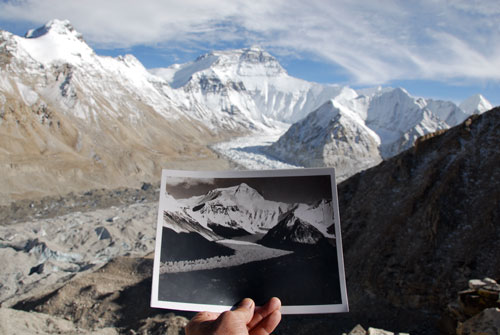Below is a guest-post from IISS Intern Madeliene Foley, looking at the Energy Security and geopolitical implications of the coup in Kyrgyzstan.
The recent coup in Kyrgyzstan came on the heels of the completion of the
Asia Gas Pipeline in December 2009, a project that is unprecedented in scale and extent of collaboration among regional powers. The coup is still causing reverberations throughout Central Asia -- a region increasingly dependent upon uninterrupted energy transit routes to China, Russia, and the West. Though it has no oil or natural gas, the now deposed President Bakiyev would have done well to leverage Kyrgyzstan’s strategic location to frame itself as a critically important transit route between oil-rich Kazakhstan and gas-rich Uzbekistan and their fastest growing customer- China.
Instead, the pipeline, which traverses Turkmen, Uzbek, Kazakh and Chinese territory,
noticeably bypasses Kyrgyzstan. This can be attributed to early difficulties and missteps in negotiating favourable contract terms. However, Kyrgyzstan’s failure to market itself as a desirable transit route means that is has not cashed in on the recent growth in Central Asia’s energy sector, even though a glance at a map would show that it should be particularly well placed to receive some of China’s increased investment.
China’s interests in the region are an attempt to secure oil and gas supplies to continue and sustain its steady economic growth. It currently depends on sea access for 90% of its imports, which presents a critical threat to its energy security. The Asia Gas Pipeline and a second Kazakhstan-China oil pipeline will expand inland fuel transport capacity well beyond the current 10%. Securing crude oil is a top priority in Chinese energy policy as daily imports have grown from 2005 levels of 3.5 million barrels-per-day to 9 million bpd today.
Though they share a common border, Kyrgyzstan has no foreseeable plans to deepen its economic and infrastructural ties with China. Given that Kyrgyztsan has had difficulty meeting its own domestic
power needs in the past, it would seriously behove the interim government to reach out to China on pipeline construction as they have to the US on
automatically extending the Manas air base contract. The new Kyrgyz regime has thus far promised to cooperate with the US government in securing Manas, but there has been little speculation of how the coup will affect Central Asia’s energy industry.
Moreover, as Central Asian and Chinese leaders have grown closer and established deeper diplomatic and economic ties, Kyrgyzstan has remained isolated
(note that Bakiyev is the notable Central Asian leader not pictured with Chinese President Hu Jintao). Skilful manoeuvring on Kyrgyzstan’s part now could secure its place as an integral transit route as Georgia has in the recent past. Kyrgyzstan’s best option at present is to reinvigorate its relationship with neighbouring states. Establishing a friendlier and more pragmatic regional outlook will both reassure neighbouring governments and lay the foundations for meaningful progress on energy infrastructure development in the future.

